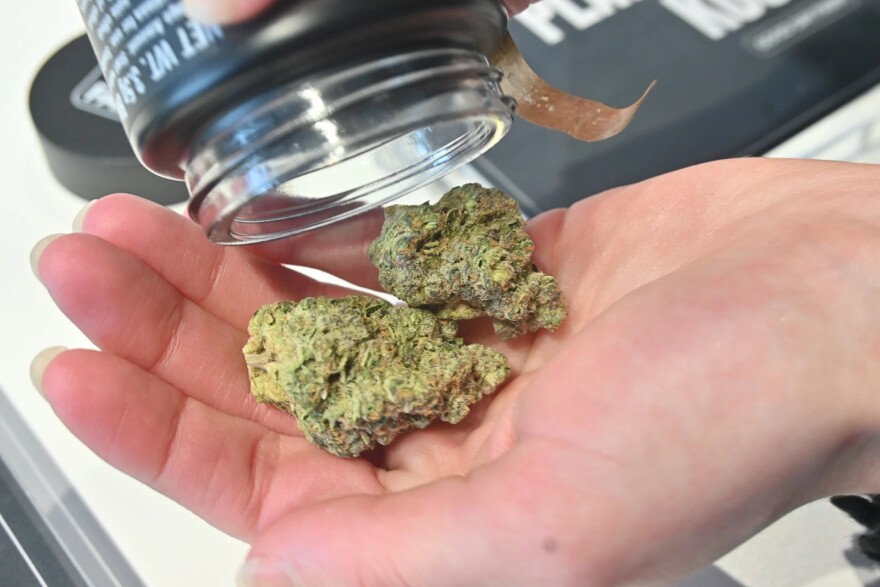TOPEKA, Kansas — A group made up of older Kansas residents is asking lawmakers to end long-time opposition to medical marijuana legalization and Medicaid expansion.
Kansas remains one of only a few states with no legal way to access cannabis and one of nine states that have not expanded the health care program Medicaid.
The Kansas Silver Haired Legislature met at the Statehouse in Topeka and voted to advocate for those issues during the legislative session that starts in January.
The group argues thousands of uninsured Kansans are between the ages of 60 and 64 and fall into a coverage gap. They’re too young to qualify for Medicare but making too much money to qualify for Medicaid.
The resolution said expanding the program would improve health outcomes by reducing the number of uninsured individuals.
Jacques Barber, a member of the Silver Haired Legislature from Wyandotte County, said that rural areas of the state would benefit greatly from Medicaid expansion.
“The people in the more rural areas are the ones who’ve been hurt the most,” Barber said. “Hospitals out there are smaller and when they receive Medicaid payments, that’s really what helps sustain them.”
It’s been an issue for years, and Democratic Gov. Laura Kelly plans to make expansion her top priority again, although Republican leaders of the chambers remain opposed and will be a likely roadblock.
The group also approved a resolution urging lawmakers to legalize medical marijuana, saying it is vital to seniors suffering from conditions such as Alzheimer’s disease and chronic pain. During testimony, advocates of the drug also praised its impact on veterans suffering from post-traumatic stress disorder.
One legislator voiced concern about crime and cartels coming to the state if it were legalized. George Hanna, the Executive Director of the Kansas chapter of The National Organization for the Reform of Marijuana Laws, said the drug trade was created by prohibition, and legalization in other states has helped curtail illegal marijuana distribution.
“We’ve had a giant shift socially in the acceptance of this plan in most of the country,” Hanna said, “thereby reducing the demand in the market, in the black market.”
Other resolutions passed include protecting voting rights of seniors, reducing state income taxes on social security, and expanding existing grandparent caregiver rights to extended family members.
The Kansas Silver Haired Legislature is a nonpartisan group comprised of Kansans over the age of 60 who advocate for issues that affect seniors in the state. This was the 41st session of the group since it was created by the Kansas Legislature in 1982.
Members of the group are picked through elections hosted by the local Area Agencies on Aging.
Joe Blubaugh reports on the Kansas Statehouse and government for Kansas Public Radio and the Kansas News Service. You can email him at jblubaugh@ku.edu.
The Kansas News Service is a collaboration of KCUR, Kansas Public Radio, KMUW and High Plains Public Radio focused on health, the social determinants of health and their connection to public policy.
Kansas News Service stories and photos may be republished by news media at no cost with proper attribution and a link to ksnewsservice.org.


